
views
General Health Tips

Exercise regularly to strengthen your lungs. While staying active might be hard with asthma, regular exercise can strengthen your lungs and help you overcome the condition. Try to get aerobic exercise like walking or running 5-7 days per week. Be mindful of your condition while you’re exercising. If you feel short of breath, then stop before you have an attack. If you use an inhaler, keep it with you while you exercise.
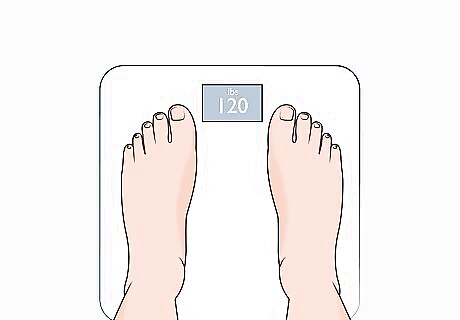
Maintain a healthy bodyweight. Being overweight puts more stress on your lungs and could make asthma worse. Talk to your doctor and decide on the ideal weight for you. Then, exercise and diet to reach and maintain that weight.

Follow an anti-inflammatory diet rich in fruits and vegetables. There is some debate about how effective an anti-inflammatory diet is on asthma, but it could reduce inflammation in your air. Eat as many fruits and vegetables as you can, supplemented with lean proteins and healthy vegetable oils, for a good anti-inflammatory diet. The Mediterranean diet is known to be particularly anti-inflammatory, so you can use this as a guide for your own diet.

Eat foods high in vitamin D. There is a correlation between asthma and people with a vitamin D deficiency. Eat foods like eggs, beef, dairy products, and oily fish for a vitamin D boost. Sunlight helps your body produce vitamin D, so spending a few minutes outside can also help boost your levels.

Avoid foods and drinks with sulfites. Sulfites can trigger asthma attacks, so consume as few as possible. Wine is particularly high in sulfites. Canned, fermented, or pickled foods tend to have sulfites as well. Check the packaging on everything you buy to check for sulfites.

Reduce stress to improve your breathing. Fast breathing or even hyperventilating is common when you’re stressed, which could trigger an asthma attack. Do your best to reduce your stress and anxiety so you can breathe easier. Relaxation activities like meditation, deep breathing, and yoga can help decrease your stress.
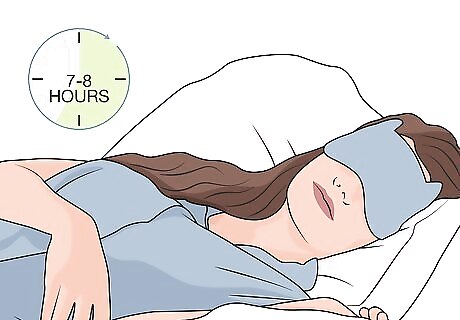
Sleep for 7-8 hours every night to keep your immune system strong. This doesn’t directly help your asthma, but getting sick can make your asthma worse. Avoid illnesses by sleeping through the night and keeping your immunity up. If you have trouble sleeping, try doing relaxing activities for an hour before bed like reading or listening to soft music.
Maintaining the Right Environment
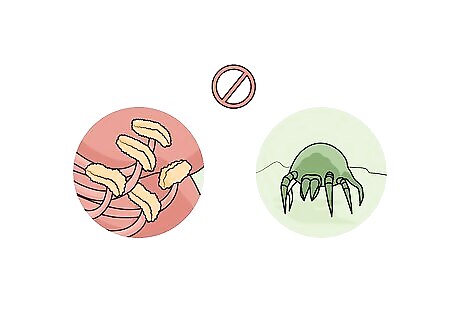
Avoid your asthma triggers. Everyone has different asthma triggers, so identify yours and do your best to avoid them. Some common ones are pollen, pet dander, dust mites, smoke, chemical fumes, and chemical fumes. Some people are also sensitive to medications like acetaminophen.

Clean or remove any carpeting in your home. Carpeting attracts dust, hair, pollen, and many other asthma triggers. This is especially true if you have pets. It’s best to remove as much carpeting as possible, but you can also clean it regularly to avoid allergen buildup. If you keep carpeting in your home, vacuum it at least once a week to clean out any dust that’s built up.
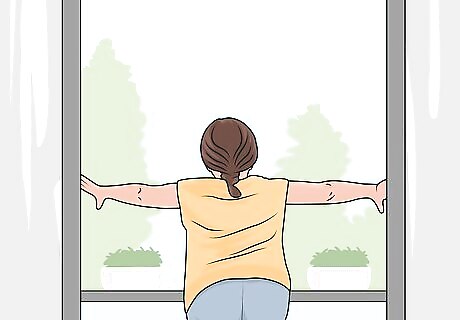
Open the windows while you clean your home. Cleaning kicks up a lot of dust and other triggers, which can make it tough to breathe. Open the windows while you clean and leave them open for a while afterward to let the dust filter out.
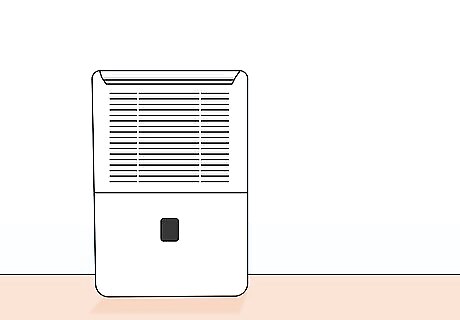
Use a dehumidifier if you live in a humid environment. Humid air is harder to breathe, so a dehumidifier could help make your home more comfortable if it’s humid outside. Remember that excessively dry air could also trigger asthma symptoms, so you may have to experiment a bit with the dehumidifier settings to find the ideal humidity level.

Stay inside if allergen levels are very high. Pollen and other environmental allergens can trigger asthma attacks. If allergen levels are high, it’s best to limit your time outside. When allergens are high outside, it’s also a good idea to run your air conditioning to filter the air.

Cover your nose and mouth if it’s cold. Cold air constricts your airway and could make breathing harder. If it’s cold outside, use a scarf or mask to keep your nose and mouth warm.

Keep tobacco smoke out of your home. Don’t let anyone smoke in your home, because tobacco smoke is a major asthma irritant. You also shouldn’t smoke yourself if you have asthma. This will definitely trigger your symptoms.
Supplements and Alternative Medicine

Take vitamin D tablets if you don’t get enough from your diet. Vitamin D deficiencies are common, so you might not be getting enough from your diet. Take a daily tablet to bring your levels back up. Your doctor can confirm whether or not you have a vitamin D deficiency with a simple blood test.

Try selenium for chronic asthma. A selenium deficiency may contribute to chronic asthma, so a daily tablet could help alleviate some of your symptoms. You can also get selenium naturally from nuts, oily fish, meat, and dairy products.
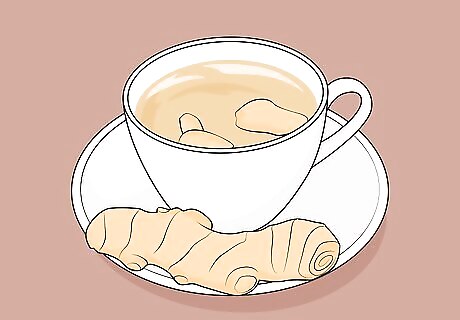
Use ginger to reduce inflammation. Ginger works as an anti-inflammatory, so it might clear your air way and make breathing easier. There are many ways to take ginger, like in tea, sprinkled on food, or in a supplement, so pick the method that you like best.

Practice deep breathing to control asthma symptoms. Since asthma can cause hyperventilating, take some time every day and focus on breathing deeply. This won’t cure asthma, but it can help you control your breathing and stave off attacks.
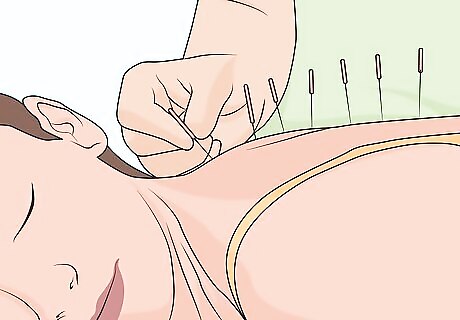
Relieve pressure with an acupuncture treatment. Acupuncture isn’t a proven treatment for asthma, but some people find that it relieves their symptoms. There is no harm in trying it if you want to. Only visit a licensed and certified acupuncturist so you know you’re receiving a safe treatment.



















Comments
0 comment